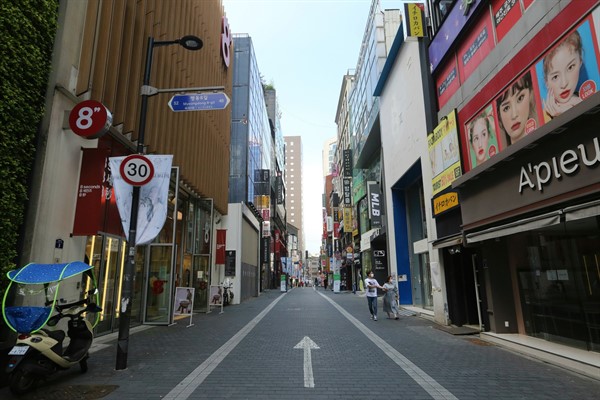South Korea, deservedly well-known for one of the world’s most successful initial responses to the coronavirus pandemic, is now seeing a dangerous spike in COVID-19 cases. On Thursday, 441 new infections were reported, the largest daily increase since March. The country has now seen triple-digit increases in new cases for 15 consecutive days, and patients have tested positive in all 17 provinces. Authorities have placed new restrictions on restaurants and ordered schools and kindergartens to close in Seoul, the bustling capital that is now the epicenter of the outbreak.
The situation shows just how difficult it is to control this novel coronavirus, even when it looks like it has been contained. Three months ago, President Moon Jae-in proclaimed to the World Health Assembly that South Korea made a choice “to overcome COVID-19.” An aggressive policy of tracking patients and mass testing, as well as early adoption of mask-wearing and social distancing, made South Korea a model for fighting the virus. Moon’s success fueled historic gains for the ruling Democratic Party in legislative elections in April, putting him in a strong position for his final two years in office.
Now, though, Moon faces arguably the most critical test of his presidency. He has so far resisted imposing a stringent lockdown, fearing “immense economic damage.” South Korea’s economy, not in the best shape even before the pandemic, is already in its worst recession in recent memory. But if public health authorities cannot control the current outbreak, Moon may find he has no choice but to lock the country down in order to avoid a rise in deaths. To date, just 316 people have died in South Korea from COVID-19, one of the lowest death tolls in the world. But that number is likely to start ticking up soon, as deaths tend to lag behind new cases by several weeks.

